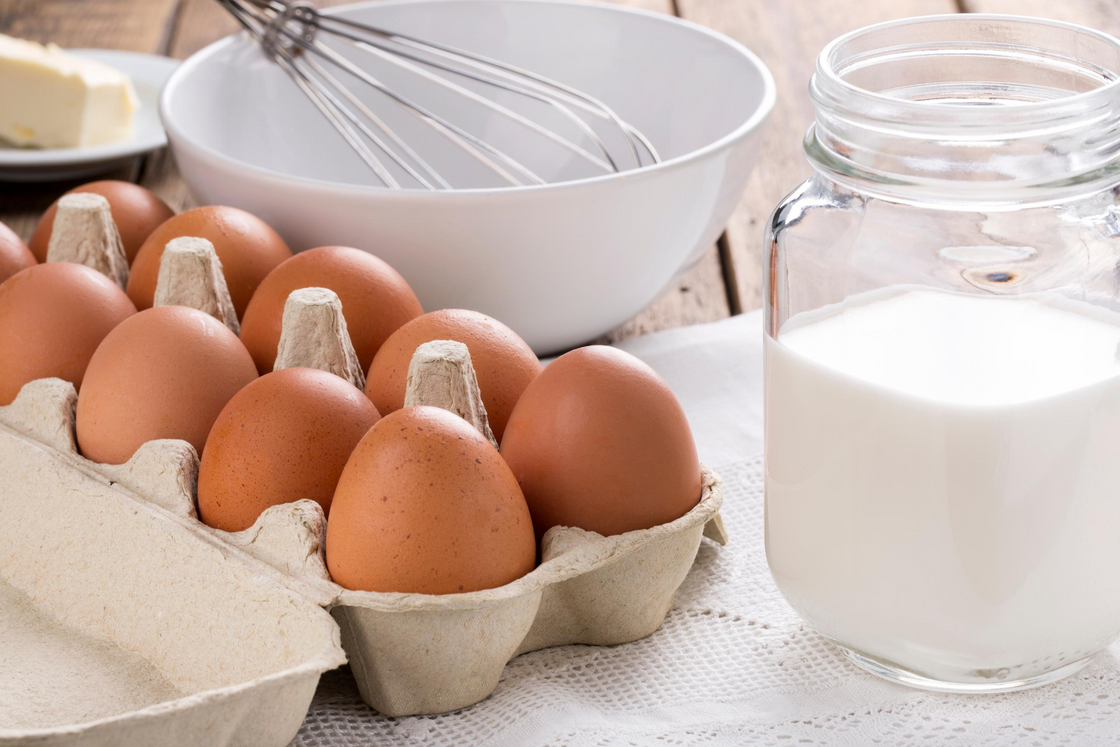Why are menopausal women at risk of high cholesterol?
Not all types of cholesterol are bad for you. Scientific researchers have shown us that cholesterol is important for many aspects of our health. Food scientist and nutritional therapist Susie Debice explains that menopausal women need to keep an eye on levels of LDL cholesterol to be aware of their cardiovascular health.
Cholesterol is a fatty substance made in vast quantities by the liver and just 20% of the cholesterol in your body comes from food sources such as oily fish, meat, dairy products and eggs. So why does the body need cholesterol? The body uses cholesterol as a key component for producing sex hormones (oestrogen, progesterone, testosterone), stress hormones, vitamin D and bile (a substance needed to digest fats).
Cholesterol is also important for mind, memory and brain function. In fact, 25-30% of the total cholesterol in the body can be found in the brain. Cholesterol is an essential component of neurons, it contributes to brain function, nerve impulses and neuronal plasticity – how thoughts and feelings shape the way we react and learn.
What is the difference between LDL and HDL cholesterol?
Cholesterol is a fatty substance which needs to attach to a transport protein to hitch a ride through the bloodstream. These cholesterol transport molecules are called lipoproteins and they tend to influence how cholesterol impacts on cardiovascular health. Cholesterol is carried through the bloodstream in two forms called LDL and HDL cholesterol.
LDL cholesterol – joins to a low-density lipoprotein. This ‘bad’ form of cholesterol is more harmful to the cardiovascular system. LDL cholesterol gets easily deposited in blood vessel walls, creating plaques that clog up artery walls and contribute to high blood pressure, atherosclerosis, heart attacks and strokes.
HDL cholesterol – joins to a high-density lipoprotein. This ‘good’ form of cholesterol is more helpful to the cardiovascular system. HDL cleverly collects up excess cholesterol and carries it to the liver where it’s processed and removed from the body, an essential step for managing cholesterol balance.
Is there a link between cholesterol and the menopause?
A large American study called SWAN (The Study of Women’s Health Across the Nation) has revealed insight into a link between the menopause and a corresponding rise in cholesterol that many women experience. Researchers are further exploring if there is an association between this and heart disease for menopausal women.
As you go through the menopause oestrogen levels start to decline, cholesterol balance becomes disrupted and some women start to see a jump in the LDL cholesterol and a drop in HDL cholesterol, tipping the ratio of their total cholesterol levels in a way that puts them at risk of cardiovascular disease, high blood pressure and atherosclerosis. Having regular cholesterol checks is particularly important for women who experience an early menopause (under 50) and extremely important for post-menopausal health.
Does exercise during the menopause help balance cholesterol?
Studies indicate that regular exercise may help some of the risks associated with the drop in oestrogen levels. Low levels of oestrogen during the menopause tend to influence LDL cholesterol to rise and HDL cholesterol to fall. Regular exercise has been found to help offset this cholesterol conundrum by increasing HDL and lowering LDL cholesterol. Other positive benefits of regular exercise which may also be helpful during the menopause include stress reduction, better mood, muscle tone, weight management, bone density support, blood pressure management and cardiovascular support.
What about diet and supplements to help lower cholesterol?
Don’t be tempted to follow a fat-free diet, remember that only 20% of your total cholesterol levels come from food sources. Cut back on saturated fat and sugar rich foods as part of a healthy eating plan which helps with weight management and general health. But it’s fibre that’s really important since cholesterol needs to bind with fibre in the gut to hitch a ride out of the body. When it comes to supplements psyllium husks, garlic, niacin (vitamin B3) phytosterols, red rice extract and omega 3 (such as krill oil) may be helpful for supporting cholesterol balance.
Author – Susie Debice BSc Hons, Dip ION
Food Scientist and Nutritional Therapist



